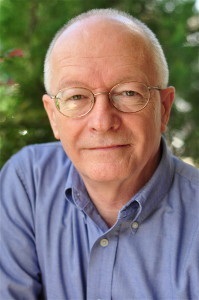Finding That Right Word
By
Henry McLaughlin
It seems to me the more writing I do, the more I find myself looking for the right word, the perfect word to convey what I want. Maybe it’s the color of a character’s eyes, or the fury of a thunderstorm scudding across the sky. It might be the clamor of city streets or the stillness of a forest at sundown. I become a perfectionist, seeking the best word to engage the reader in the story at that moment.
When this
happens early in my writing process, like the first or second draft, I’ve sometimes
forgotten one of the cardinal rules I learned early in my career—get the first
draft out. Don’t stop writing to go searching for perfection. I’ll lose
whatever momentum I’ve developed. I’ll stop writing.
Norah
Lofts is credited with saying, “I can fix a bad page. I can’t fix a blank
page.” This advice has inspired me to keep writing, even when what’s coming out
is junk. Why? Because if I’ve got junk on the page, I’ve got something to work
with.
I’ve
learned that early drafts are the way to give the story idea some solidity. It
becomes something tangible I can see and work with. This applies whether you’re
an outliner or a pantser. I’ve done both. The outline is the skeleton. The
story doesn’t come alive in the flesh until it’s written. The same applies to
being a pantser. The idea doesn’t become real until I put words on the page.
When I
get to the editing stage is when I look for the right word.
The first
tip I want to share is to be
specific.
For
example, I may have my characters traveling on a road. That’s fine for the
early drafts, when getting the story moving is important (no pun intended). In
the rewrite and tweaking is when I look for that right word to add clarity,
mood, tension, and suspense by showing more detail. What kind of road is it? Is
it an interstate? A country back road with potholes and a crumbling shoulder?
Main Street in a small town? A boulevard in a big city?
Part of
being specific is being descriptive without resorting to overwriting or purple
prose.
I also
need to keep the genre in mind. If it’s a western, the road might be two ruts
carved by wagons. Or the setting may be a contemporary upscale neighborhood
that would never use words like street or avenue. They might use
the names way or lane or parkway.
My go-to
resource when I’m looking for the right word is J. I. Rodale’s The Synonym Finder. It’s one of
the most complete sources for synonyms I’ve found.
The key
is to narrow my list of words until I hit the one that best captures what I want
the reader to visualize. This applies to more than just roads. I want the words
to be appropriate to the setting of the scene, to the characters as they have
grown in the story, and to the circumstances they find themselves in.
Look for
ways to describe from a unique sense rather than the usual ones we use. Study
the scene you’re working on. Can I recall an experience I had in a similar
setting? What did that feel like? How can I incorporate those same feelings and
sensations into my story?
Think of
how to describe the feel of corduroy under your fingers. Or of how tromping
through six inches of heavy snow feels in your muscles, with the cold drilling
into your cheeks and fingers.
What are
some ways you’ve found to be specific in your writing?
(Photos courtesy of Unsplash, Brett Jordan, and Sven Brandsma.)
TWEETABLE
Tagged as “one to watch” by Publishers Weekly, award-winning author Henry McLaughlin takes his readers on adventures into the hearts and souls of his characters as they battle inner conflicts while seeking to bring restoration and justice in a dark world. His writing explores these themes of restoration, reconciliation and redemption.
Besides his writing, Henry treasures working with other
writers and helping them on their own writing journeys. He is a member of
American Christian Fiction Writers. He regularly teaches at conferences and
workshops, leads writing groups, edits, and mentors and coaches.
Visit him at http://www.henrymclaughlin.org.
Follow him on Facebook.






Comments
Post a Comment